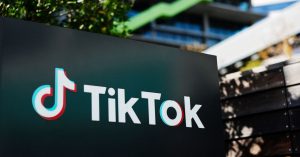Co-founder of VentureBay. Tech Entrepreneur, investor, board member, advisor and coach.
In an epoch marked by rapid and groundbreaking technological advancements, the ascendancy of artificial intelligence (AI) stands as an unquestionably momentous shift of our time. The rise of this technology transcends mere technological progress and has the potential to reshape industries, redefine societal dynamics and transform global economies.
For businesses looking to innovate, embrace risks and navigate the surging tide of AI, they’ll need to map out their journey from the inception of an idea to the creation of a minimum viable product (MVP). But how should they go about doing this? Let’s first look in more detail at the impact that AI is having and then explore how forward-thinking entrepreneurs can effectively take their AI-related ideas from some notes on a Post-it to full-fledge MVP.
AI Disruption: A New Frontier Of Transformation
When we contemplate the concept of disruption, it often elicits thoughts of unsettling change. However, within the realm of technology, disruption signifies the dawn of boundless possibilities. AI’s profound capabilities—encompassing deep learning, predictive analytics and automation—herald the advent of an entirely new era. Industries that once appeared impervious to change are now witnessing a revolution of unparalleled proportions.
For entrepreneurs, this disruption should not pose a deterrent; rather, it should serve as an invitation. Unlike monolithic corporations burdened by hierarchical decision-making and entrenched legacy systems, entrepreneurs possess the agility to swiftly harness the potential of AI. Their ventures, nimble and adaptive, can deftly seize the opportunities presented by AI, experimenting and iterating at an unmatched pace.
Market Dynamics In The AI Era: A Shifting Landscape
With every technological leap, the market landscape undergoes a metamorphosis. New needs emerge, existing ones evolve and some even fade into obsolescence. This fluidity is a fertile breeding ground for entrepreneurial endeavors.
Consider the vast array of opportunities that AI presents: the realm of AI-assisted healthcare diagnostics, personalized education platforms driven by machine learning, smart cities powered by AI algorithms and countless other possibilities. Entrepreneurs, with their innate ability to identify gaps and innovate, stand at the forefront, creating solutions that often precede market demand.
MVPs In The AI Landscape: A Precarious Balance
In a recent discourse with Surbhi Gupta, a prominent figure in product management on LinkedIn, we delved into the intricacies of crafting an MVP within the realm of AI. The pursuit of an MVP in the AI landscape presents a distinct set of challenges, necessitating a delicate equilibrium. Beyond the complexities inherent in product management, AI product companies must also prioritize perpetual differentiation, sustainability and the maintenance of industry leadership.
Here are some strategic approaches to navigate these multifaceted demands and come up with an MVP:
Industry Expertise
The first thing to consider is to make sure you have an in-depth understanding of the industry or problem domain that your AI solution is aiming to address.
Sustainable Specialization
Excel in solving a specific problem exceptionally well, ensuring that your niche remains unassailable. Position yourself as the foremost provider of solutions in that particular area.
Continuous Innovation
Maintain a competitive edge by continuously refining your AI models and algorithms, remaining one step ahead of the ever-evolving landscape.
Strategic Partnerships
Forge alliances with key players in your industry to solidify your market position and enhance your product offerings.
User-Centric Design
Ensure that your MVP is user-friendly and delivers tangible value to your target users. Implement measures to protect data privacy and security in order to foster user trust. Additionally, safeguard your competitive advantage by securing intellectual property rights for your AI innovations, establishing barriers to deter potential competitors.
Gain A Competitive Edge
Differentiate yourself to mitigate the risk of competitors imitating your AI solution. Leverage unique data sets that are not easily replicable.
Challenges t’s important to understand that any pursuit of an MVP as it pertains to AI is likely to contain challenges. Here are several to look out for:
Loss Of Confidential Data
• Challenge: AI requires significant amounts of data for training and functioning, which usually includes sensitive information. Maintaining data privacy and security is a very big concern to prevent breaches and unauthorized access to confidential data.
• Mitigation: Implement robust encryption, have proper access controls, and comply with data privacy regulations to safeguard user and organizational data.
Hallucination And Unpredictable Outputs
• Challenge: AI models can generate misleading or incorrect outputs, a phenomenon known as a “hallucination.” Unpredictable behavior can erode user trust and damage the product’s reputation.
• Mitigation: Extensive testing, diverse training data and ongoing monitoring.
Black Box Nature Of AI
• Challenge: Understanding the inner workings of complex AI models is challenging; they operate as “black boxes,” making it difficult to explain how they arrive at specific decisions or predictions.
• Mitigation: Employ explainable AI techniques to enhance transparency and interpretability, allowing stakeholders to understand and trust AI-driven decisions.
Copyright Issues And Ethical Concerns
• Challenge: Utilizing AI may inadvertently violate copyright laws where AI generates content resembling copyrighted material.
• Mitigation: Adhere to copyright laws, ensure proper attribution and use legal counsel to promote ethical AI usage.
Potential For Misuse And Bias
• Challenge: AI algorithms learn biases present in training data, resulting in biased outcomes that discriminate against certain demographics or perpetuate existing societal biases.
• Mitigation: Implement fairness-aware AI techniques for diverse representative training data and continuously monitor and address biases.
Conclusion
AI represents more than just a technological epoch; it stands as a testament to human ingenuity and adaptability. Entrepreneurs, with their visionary zeal, occupy the helm, guiding us through uncharted waters. Their journey, characterized by innovation, resilience, and an unwavering pursuit of progress, serves as a beacon, illuminating the countless possibilities that lie ahead. As they merge the realms of AI and business, they do not merely create products—they sculpt the future.
Forbes Technology Council is an invitation-only community for world-class CIOs, CTOs and technology executives. Do I qualify?
Read the full article here








